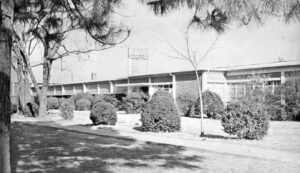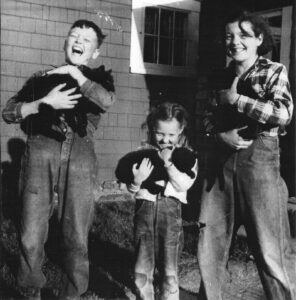The morning was quiet, the sun beginning to rise and touch the hills surrounding Jerusalem and the buildings within its walls with soft golden light. Ananias left the inner courts of the Temple, the words of the Shema fading away behind him as he stepped into the Court of the Gentiles.
“Shema Yisrael, Adonai Eloheinu, Adonai Ehad.”
Hear, O Israel, the Lord our God, the Lord is One.
The smell of animals still filled the courtyard from all the beasts that had inhabited it in the days preceding the Passover, and the Pharisee could still hear the tumultuous noise in his memory. But right now the Temple grounds were quiet on the day following the Sabbath, and everything was good.
Some of the money changers and vendors appeared on edge, although they had no cause to be. Ever since the rabble-rouser, Jesus of Nazareth, had driven them from the courtyard in an uncharacteristic fit of anger, accusing them of making His Father’s house “a den of thieves,” there had been the slightest hint of unease among them, as if they were waiting for another such occurrence.
But Jesus was now finally dead.
Ananias made his way into the Royal Stoa and, leaning against one of the pillars, looked across the Temple steps to the sprawling city of Jerusalem. Once it had belonged to them, the Jews, but now the Romans had claimed conquest over the Jewish people and dwelt in their beloved city.
One problem at a time, Ananias told himself. With Jesus gone, we can await the coming of the true Messiah to rid us of these despicable Gentiles.
A lone Roman soldier started up the steps, eyes intent on the Stoa. Ananias tensed, wondering why the soldier should be approaching the Temple at this hour, and alone at that. The Antonia Fortress was on the other side of the Temple complex — what was he doing here? Why couldn’t the Romans just stay away from his beloved Temple? It was bad enough the Jews had been defeated by the outsiders; they shouldn’t have to share the same air with them as well.
The soldier started toward Ananias with a resolute step and the Pharisee backed away from the columns, intent on keeping his distance from the defiled Gentile. But before he could retreat to any great distance, the Roman was standing before him and speaking in a low voice. “There has been some trouble with the tomb guard.”
Whatever Ananias felt about mixing with Gentiles melted away as he realized what the Roman meant. He meant the tomb of Jesus of Nazareth.
A Roman guard had been secured to watch over the tomb and keep it safe from Jesus’ disciples, in case they should decide to steal the body and proclaim Jesus had risen from the dead, as He had spoken of in His teachings. The guard had been a precaution, nothing else, but if there had been trouble, the Sanhedrin’s fears must have been realized.
“Not here,” Ananias said quietly to the Roman. “Wait — I shall return with some of the elders and then we shall proceed down into the valley to speak.”
Quickly, Ananias walked off. It didn’t take him long to find several members of the Sanhedrin before heading back to the Stoa to follow the soldier, descending into the Tyropean Valley.
Several Roman guards met them, ashamed and bewildered looks in their eyes. Including the one sent to summon Ananias, there were six. Ananias didn’t know where the other ten had gone, but he was too concerned with what had taken place to ask.
“What happened?” he demanded. “Tell us quickly.”
The head guard looked grim. “A tumult occurred. There was a flash of light and a man appeared, descending from the sky, dressed like no man I have ever seen. The next thing we knew, we were all regaining consciousness to see the tomb with the stone rolled back. When I looked inside, it was empty except for the burial cloths, set to one side.”
The body is gone.
Ananias felt a shiver run down his spine. Had Jesus’ disciples stolen the body? How would they have been able to? Sixteen Roman guards had been stationed before the tomb. Jesus’ disciples were nothing more than simple fishermen from Galilee and poorer Jews from Jerusalem and the surrounding towns. Sinners, all of them. Some of them had more power, like Joseph of Arimathea and Nicodemus, one of the Pharisees’ own, but not many. They had no force of arms to fight against the guards. One of Jesus’ close followers might have had a bit of skill with a sword, but nothing to equal the military might of the Romans.
And how to explain what the Romans saw?
“How does this even happen?” Ananias bellowed. “You are sixteen Roman guards! How do you all fall unconscious at once?”
The Roman looked at the Pharisee, his gaze sharp. “I do not know. That is what I am saying. The event — it was supernatural, from the gods themselves.”
Ananias took a deep breath, calming himself. No Roman god had done this.“Wait here,” he ordered.
The group of scholars headed back to the Temple mount, quickly sending out messengers to summon the elders of the people. All seventy-one members of the Sanhedrin convened at the house of Caiaphas, the high priest, to discuss what was to be done concerning the empty tomb.
“This is a disaster,” Annas, Caiaphas’ father-in-law, fretted. “The guard was stationed there to prevent this very thing from occurring!”
Caiaphas held out his hands in a calming gesture. “We must come up with a remedy.”
“We must prevent word from spreading about this event,” Ananias declared. “Word of this cannot leave our numbers. Those who once believed must not have cause to think any more of Jesus of Nazareth; they must believe Him dead.”
“Then keep those Roman guards from talking about it,” Caiaphas interjected. “Keep them quiet. Promise them something, money, protection, anything, to keep them from speaking about this. We can prevent news of this from spreading any further.”
As the meeting adjourned, Ananias and a few others left Caiaphas’ house and headed back to where they had left the Romans in the valley. The guards looked up at the Jews as they approached, halting while several feet still existed between them.
“Word of what has happened at the tomb must not get out,” Ananias said. “No one must have cause to believe there was anything miraculous about this.” He remembered all too well what Jesus had said concerning the resurrection of His body. “Jacob, the money bag.”
Jacob, a Sadducee, retrieved the money bag from his belt while Ananias turned back to the Roman guards. “You are to say, ‘His disciples came by night and stole him while we were asleep.’ And if this gets to the ears of the governor, we will satisfy him and keep you out of trouble.”
The Romans nodded as Jacob handed them the money bag.“Here, take this as payment for spreading the story I told you,” Ananias directed. “This must seem like a simple grave robbery, at all costs. Nothing more.”
The head guard bid the Jews goodbye and, with the other Romans, left the Tyropean Valley. Ananias watched them go with misgivings.
He didn’t have a good feeling about this matter.
He didn’t think their precautions were going to stop the spread of the story at all.






